We can't find the internet
Attempting to reconnect
Something went wrong!
Hang in there while we get back on track
GenServer

The Elixir programming language, well-suited for building scalable and maintainable applications, is gaining popularity in various domains. Its concurrency model, built around the actor paradigm through GenServers, enables developers to create systems that are resilient and fault-tolerant. GenServer, a behavior module in Elixir, plays a crucial role in creating stateful services that can handle numerous concurrent requests efficiently.
Understanding GenServer and its place within the OTP framework is essential for developers looking to leverage Elixir's full potential. In practical terms, GenServer is used to manage state, handle synchronous and asynchronous requests, and implement server functionality. It is the cornerstone of concurrency in Elixir, allowing for the development of long-running processes that maintain a state.
Observability and debugging are also strengths of the language, with tools specifically tailored for the BEAM VM, providing valuable insights into process behavior and performance. Furthermore, mastering Elixir often involves delving into Erlang, the underlying language that Elixir compiles into, which provides a deeper understanding of the BEAM's capabilities.
The ecosystem promotes a strong culture of monitoring, with Elixir applications commonly running on clustered nodes, increasing the importance of understanding process management, supervision trees, and restart strategies. With Elixir's functional programming approach, developers describe successful implementations in domains ranging from web development using Phoenix LiveView to game development, indicating its versatility.
Adopting Elixir goes beyond syntactic familiarity; it's about embracing a new way to think about application design. This includes managing states without the traditional reliance on object-oriented paradigms, utilizing message passing for communicating between processes, and employing more sophisticated methods like GenStage and Flow for message processing.
Furthermore, the community is vibrant, contributing tools like static code analysis with Credo or Plug-ins for formatting. Additionally, Elixir's pragmatic approach to real-world problems is evident in projects that merge AI or web scraping capabilities into the language's eco-system.
As Elixir continues to grow, José Valim and other core team members introduce enhancements, like improved compiler diagnostics and anti-pattern references, to refine the developer experience. Seasoned programmers bring their expertise into the ecosystem, presenting how to handle connections, viz TCP, or secure sensitive data within processes. For aspiring Elixir professionals, resources range from sensible advice on getting started to nuanced discussions on complex system design. Finally, the forward-looking aspect of Elixir comes to light with developers encouraged to explore new tools aimed at distributed systems which play into the language's strengths.

Integrating Python and Elixir for Web Scraping
Marcelo discusses strategies for running existing Python web scraping scripts within an Elixir project, providing practical advice and code examples.

Exploring Adobe's Elixir Styler for Code Formatting
In episode 176 of ElixirCasts, we explore Adobe's Elixir Styler, a formatter plugin for Elixir that can identify and fix code issues automatically.

Release of Elixir v1.16 with Improved Diagnostics and Documentation
José Valim announces the release of Elixir v1.16, highlighting enhanced compiler diagnostics, revamped documentation, and a new anti-patterns reference.

Managing State Across LiveViews in Elixir Application
NerdyByDesign is seeking advice on best practices for managing communication and state between LiveViews in an Elixir Phoenix application.

Erlang's Role in Learning and Using Elixir for Programming
Author hezwat inquires about the necessity of learning Erlang for Elixir programmers and seeks guidance on the learning path to use Elixir professionally.

Discussions on Implementing a Server-based Digital Clock using Elixir LiveView
zenom__ is considering using Elixir's LiveView for a server-based digital clock to avoid relying on client-side time, but questions the impact on the server compared to a JavaScript solution.

Securing Sensitive Data in Elixir's GenServers
Gabriel Pereira discusses the importance of protecting sensitive data within Elixir GenServers and introduces methods to secure such data.

Understanding Child Specs in Elixir for Supervision Trees
Benjamin Milde explains the concept of child specifications (child specs) in Elixir and how they are used to configure supervision trees.
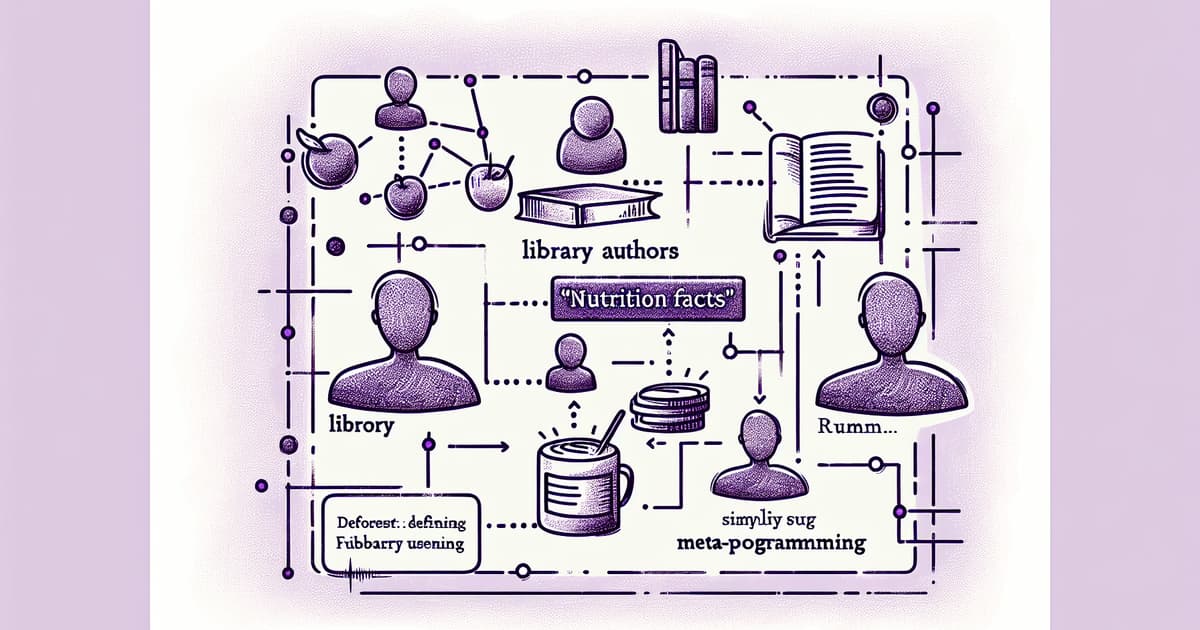
Introduction of 'Nutrition facts' for Elixir meta-programming
José Valim has called on Elixir library authors to include a 'Nutrition facts' section for meta-programming to succinctly explain the impact of using their modules, starting from Elixir v1.15.

Exploring Phoenix LiveView through a Planning Poker App
Scorpil shares insights on building an interactive web application using Elixir's Phoenix LiveView.

Simplifying Distributed Elixir Systems with Spawn
Elias Dal Ben Arruda & Adriano Santos introduce Spawn, a new tool for building distributed systems in Elixir, simplifying the management of actors and state persistence.

Understanding Credo for Elixir Code Analysis
In this episode, we explore Credo, an Elixir package for static code analysis, to maintain consistency and improve code quality.

Integrating AI Technologies with Elixir for Application Development
Charlie Holtz delivered a talk on integrating artificial intelligence with Elixir in application development, focusing on three key patterns that frequently arise when creating these types of apps.

Travel Platform Transformation Using Elixir
Kimberly Erni shares insights on using Elixir for TravelPass Group's travel platform transformation.
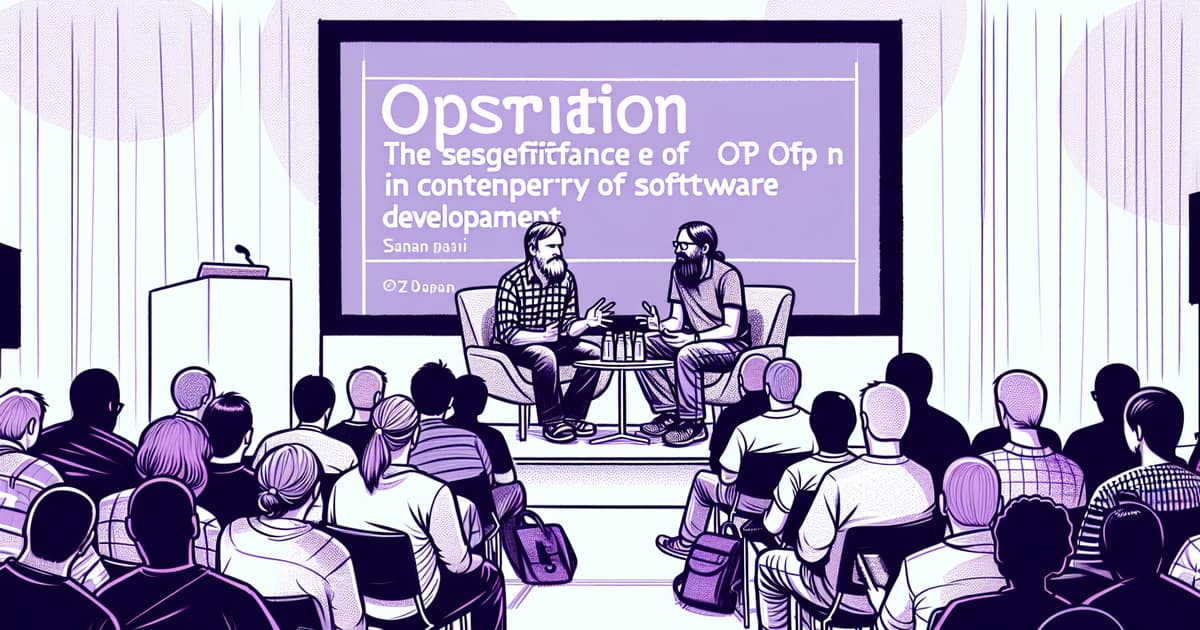
Debate on OTP's Role and Evolution in Elixir Software Development
Dave Thomas, with counterpoints from Brian Mitchell, explores the topic of using OTP (Open Telecom Platform) in modern software development within the Elixir ecosystem.

Scaling Elixir's Flow for Massive Message Processing
John Mertens presents an overview of Change.org's journey utilizing Elixir specifically GenStage and Flow for processing a large number of messages.

Data Management Strategies in Elixir Applications
Alex Peachey, the CTO of Versus Systems.com, discusses the transition from a Ruby stateless system to an Elixir state-based system, providing faster access to data. The talk focuses on various options for managing application state, including GenServer, ETS, and Mnesia, and their respective pros and cons.

Concurrency in Go and Elixir: A Comparative Study
Anna Neyzberg and Hannah Howard present a detailed analysis of the concurrency features offered by Go and Elixir.

Understanding Process Potential for Concurrency and Fault Tolerance in Elixir
Meryl Dakin discusses the power of OTP in Elixir for enabling multitasking and fault tolerance within applications. She presents a practical example of an app that deploys lessons to Github repositories to showcase how OTP's concurrency tools can help developers efficiently manage tasks, maintain global state, and ensure reliability, even for those transitioning from object-oriented programming backgrounds.

Exploring the Underlying Network of Phoenix Applications
Mat Trudel presents an in-depth analysis of the network and process management architectures underpinning Phoenix applications, particularly the supervision and process models within the BEAM.

Elixir for Real-Time Strategy Games in Space
Julian Doherty discusses the challenges and design patterns in building a real-time strategy space battle game with consideration to the speed of light as a gameplay factor.
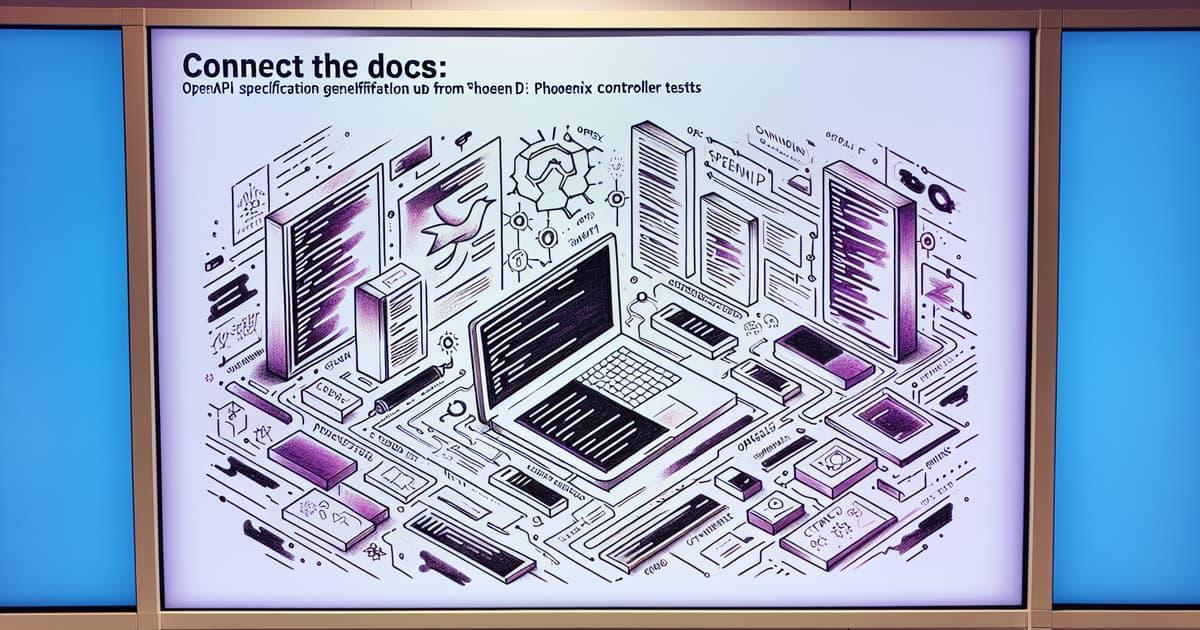
Automatic API Documentation Using Connect the Docs in Elixir
Natalie Perpepaj & Geoff Smith introduced Connect the Docs, a tool to automatically generate web API documentation from unit tests.

Reflecting on 4 Years of Elixir in Production
Ed Bond shares his journey and experiences of using Elixir in a production environment over the course of four years, highlighting the benefits, tools, and techniques that have proven effective.

Comparing Game Development across Various Languages with a Focus on Elixir
In the latest episode of the Elixir Wizards podcast, Dorian Iacobescu, author of the ECSpanse ECS library for Elixir, and Daniel Luu, CEO of AKREW game development studio, discuss backend game development using the Entity Component System approach. They delve into challenges like handling inventory storage and building games for various platforms, showcasing the importance of collaboration and innovation in the game development community.

Discovering the Hidden Value of Elixir Beyond Functional Programming
Owen Bickford discusses why Elixir is his preferred programming language, highlighting its functional paradigm, concurrency, and fault tolerance. He also delves into a lesser talked about feature of Elixir that allows it to solve problems previously considered unfit for the language and the BEAM.

Building Scalable Machine Learning Applications with Elixir
Sean Moriarity shows how easy it is to build machine-learning applications with Elixir, especially in a few hours, to build a simple enriched newsfeed.

Setting Up an SFTP Server Using Elixir and Erlang
Max Mulatz and Andreas Knöpfle show how to set up a quick SFTP server in Elixir utilizing the Erlang ecosystem. They explain why an SFTP server is still relevant and explain the process of building one.

Exploring Elixir's Unique Observability Features
Lars Wikman shares insights on the observability features unique to the BEAM runtime and how Elixir has excellent tools for monitoring and debugging applications.
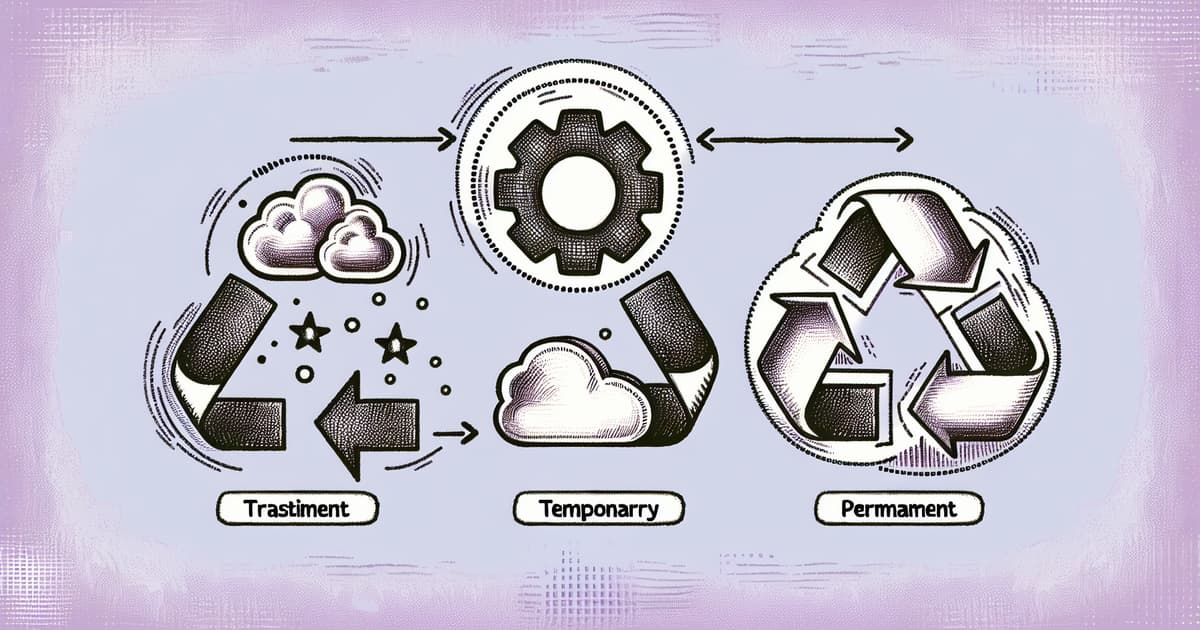
Exploring Elixir's Process Restart Strategies
Herminio Torres explains the importance of process restart strategies in Elixir and how they ensure system reliability and resilience.

Understanding GenServer Timeouts in Elixir
Herminio Torres wrote an article about managing timeouts in GenServer in Elixir, highlighting the importance of using the :timeout option to control waiting time in critical operations.

Exploring Flop for Elixir Data Handling
In Episode 166 of the Thinking Elixir podcast, Mathias Polligkeit discusses his creation of the flop library, which provides a convenient and reusable solution for filtering, sorting, and pagination in Elixir projects. He also introduces the flop_phoenix package, which includes heex components for building filter forms and tables. It's an interesting exploration of a useful library for Elixir developers.

Understanding TCP Connections in Elixir Applications
Andrea Leopardi explains how to handle TCP connections in Elixir. He provides a detailed guide on using the :gen_tcp module to establish connections, send messages, and handle responses. He also discusses implementing a queuing system, handling errors, and using pooling libraries like poolboy.

Using Elixir's Registry for Process Pooling
Andrea Leopardi explores process pooling strategies in Elixir using Elixir's built-in Registry. The post discusses the differences between checkout pools and routing pools, provides code examples, and explains how to implement different routing strategies within a pool.

Building a Note-Taking Application with Elixir's LiveView and GenServer
In this blog post, AbulAsar explains how to build a simple notetaking app using Liveview and GenServer in two parts. In part 1, AbulAsar focuses on generating the application, adding an API layer, and creating the GenServer process to manage the application state.

Understanding Phoenix LiveView as an Elixir Process
Jason Stiebs from Fly.io explains how Elixir Processes work in Phoenix LiveViews. He emphasizes the importance of understanding that a LiveView is a process and discusses the benefits and implications of using processes in building scalable applications.
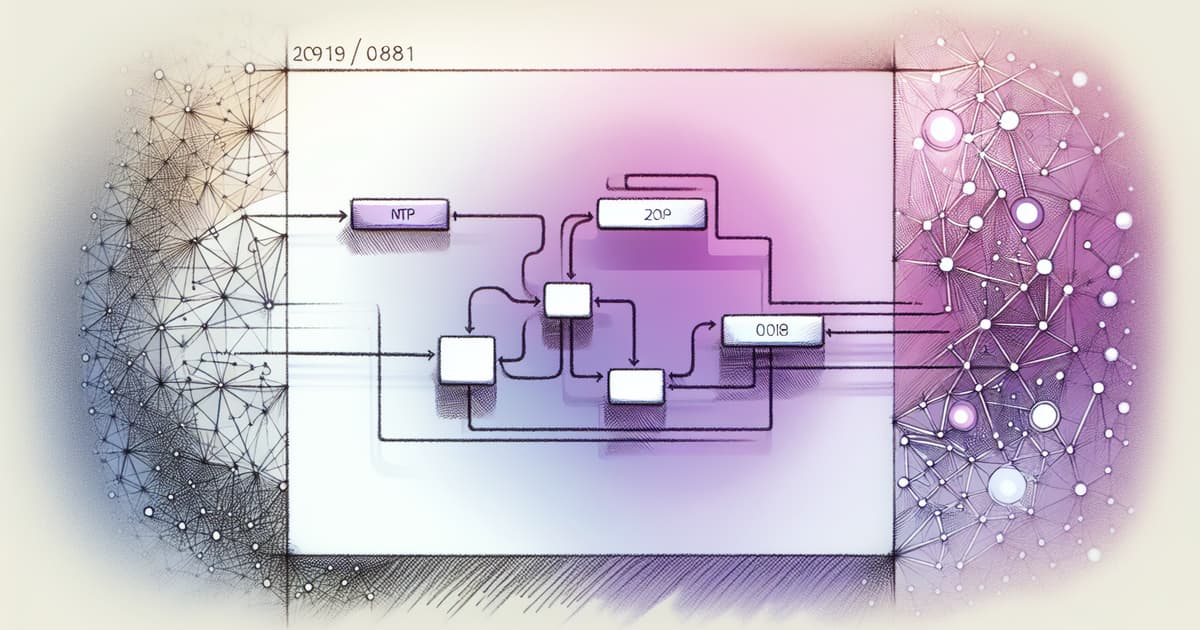
Building an Elixir-based NTP Server
Andrei created a fake NTP server as an exercise in reverse engineering the NTP protocol using Elixir. He explored the NTP request and response packets and built a UDP server in Elixir to handle and respond to NTP packets. Overall, he had fun implementing his own custom sigil and learned more about tcpdump and GenServers in the process.
© HashMerge 2026